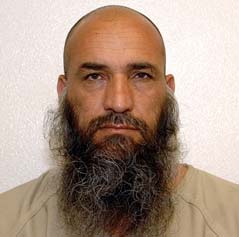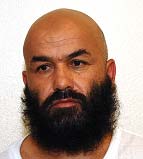Spying on al Qaeda
Double agents, although uncommon, have played a significant role in the post-9/11 fight against terrorism. The double agent who broke up a recent al Qaeda in the Arabian Peninsula (AQAP) plot is just the latest example.
Double agents, although uncommon, have played a significant role in the post-9/11 fight against terrorism. The double agent who broke up a recent al Qaeda in the Arabian Peninsula (AQAP) plot is just the latest example.
Just one week before his demise, Osama bin Laden wrote that al Qaeda members should avoid confrontation with the Muslim Brotherhood, which he said offers only “half solutions” but is migrating towards the “true Islam.”
The Combating Terrorism Center’s report on the bin Laden files gets a basic fact about the history of the relationship between Iran and al Qaeda wrong.
A new report by the Combating Terrorism Center (CTC) at West Point, which has been widely cited, concludes that relations between Iran and al Qaeda are “antagonistic.” Documents showing collusion between the two were not released by the CTC, however. And the CTC ignored much other evidence that got in the way of its conclusion.
We will be analyzing Osama bin Laden’s documents in a series of articles. While partial declassification is a good thing, the public should see nearly all of bin Laden’s documents, not just some of them.
 One of the Uighur detainees transferred to El Salvador was deemed a “high” risk by US officials because of his alleged ties to senior al Qaeda operatives.
One of the Uighur detainees transferred to El Salvador was deemed a “high” risk by US officials because of his alleged ties to senior al Qaeda operatives.

Abu Hafs al Mauritani, a senior al Qaeda ideologue, has reportedly returned to his home country in West Africa from Iran, where he had lived since late 2001. The exact circumstances of his return remain unclear.
Viktor Bout has been sentenced to 25 years in prison. His amoral flexibility allowed him to serve everyone from al Qaeda and the Taliban, on the one hand, to military contractors in Iraq.
 Documents recovered in Osama bin Laden’s Pakistani safe house reportedly show that the al Qaeda master had a hand in the 2008 Mumbai attacks.
Documents recovered in Osama bin Laden’s Pakistani safe house reportedly show that the al Qaeda master had a hand in the 2008 Mumbai attacks.
Ambassador Ryan Crocker warns that al Qaeda is still in Afghanistan and will return in greater numbers if the West prematurely leaves.
According to the latest estimate released by the US intelligence community, 167 ex-Gitmo detainees are “confirmed” or “suspected” of reengaging in “terrorist or insurgent activities.”
In an apparent case of mistaken identity, the Egyptian state press reported that Saif al Adel, a high-ranking al Qaeda leader, had turned himself in.
The US Treasury Department designated the Iranian Ministry of Intelligence and Security for its human rights abuses and sponsorship of terrorist organizations, including al Qaeda and its affiliate, al Qaeda in Iraq.
 A new leader of al Qaeda’s network in Iran has been reportedly named. Muhsin al Fadhli is a longtime al Qaeda operative who was involved in al Qaeda in Iraq’s operations as well as al Qaeda’s 2002 attack on a French naval vessel.
A new leader of al Qaeda’s network in Iran has been reportedly named. Muhsin al Fadhli is a longtime al Qaeda operative who was involved in al Qaeda in Iraq’s operations as well as al Qaeda’s 2002 attack on a French naval vessel.
Leaders of an al Qaeda cell that plotted a Mumbai-style attack in Europe in 2010 and fought alongside the Islamic Movement of Uzbekistan are living in Iran.
 An Algerian court sentenced Nadji Abdelaziz, a former Guantanamo detainee, to three years in prison on Monday. Abdelaziz served both Lashkar-e-Taiba and al Qaeda, according to memos prepared by Joint Task Force-Guantanamo.
An Algerian court sentenced Nadji Abdelaziz, a former Guantanamo detainee, to three years in prison on Monday. Abdelaziz served both Lashkar-e-Taiba and al Qaeda, according to memos prepared by Joint Task Force-Guantanamo.
The White House denied a report that said the US had agreed to release five Guantanamo detainees as part of a quid pro quo deal with the Taliban. The denial does not rule out the possibility that the five Taliban commanders will be freed in the future.
 The Taliban is planning to open a new “political office” in Qatar as part of nascent peace talks with the US. The Taliban continues to demand the release of “high risk” detainees from Guantanamo as a prerequisite to the talks. The Taliban detainees all have extensive ties to al Qaeda.
The Taliban is planning to open a new “political office” in Qatar as part of nascent peace talks with the US. The Taliban continues to demand the release of “high risk” detainees from Guantanamo as a prerequisite to the talks. The Taliban detainees all have extensive ties to al Qaeda.
Abu al Bara’a Abdul Aziz bin Attash was killed in a clash with Ethiopian forces. Bin Attash was a member of a particularly notorious al Qaeda family that has served the Taliban, al Qaeda, Shabaab, and other allied terrorist organizations.
The US government is offering a $10 million reward for information leading to the capture of Yasin al Suri, a senior al Qaeda facilitator based in Iran. Al Suri was designated by the Treasury Department in July.
The Obama administration is considering repatriating some Guantanamo detainees to Afghanistan as part of a diplomatic effort to engage the Taliban. Four senior, high-risk, commanders are thought to be at the top of the list.
On Nov. 28, a DC district court ruled that Iran and Sudan were culpable for al Qaeda’s 1998 embassy bombings in Kenya and Tanzania. The attacks killed more than 200 people and were al Qaeda’s most successful operations prior to 9/11.
 A DC district court released its opinion denying Guantanamo detainee Bostan Karim’s petition for a writ of habeas corpus. Karim led an IED cell that targeted Americans, and several other members of his network were detained at Guantanamo.
A DC district court released its opinion denying Guantanamo detainee Bostan Karim’s petition for a writ of habeas corpus. Karim led an IED cell that targeted Americans, and several other members of his network were detained at Guantanamo.
The US Treasury Department designated five Iranians who were allegedly involved in a plot to kill Saudi Arabia’s ambassador to the US. One of the five planned a deadly assault on American soldiers in Karbala, Iraq in 2007.
 In a statement released online, AQAP has confirmed that Anwar al Awlaki was killed in a US airstrike late last month. AQAP references the debate in the US over the legality of killing Awlaki, who was an American citizen.
In a statement released online, AQAP has confirmed that Anwar al Awlaki was killed in a US airstrike late last month. AQAP references the debate in the US over the legality of killing Awlaki, who was an American citizen.
The seventh edition of Inspire celebrates the Sept. 11, 2001 terrorist attacks, as well as a number of other attacks. The magazine uses a photo of New York’s Grand Central Station to promote a future article by Anwar al Awlaki.
During a Senate hearing today, Admiral Michael Mullen, the Chairman of the Joint Chiefs of Staff, highlighted the Pakistani Inter-Services Intelligence Agency’s role in sponsoring the Haqqani Network – including attacks on American forces in Afghanistan and the US Embassy in Kabul.
During congressional testimony, Director of National Intelligence James Clapper said that the estimated recidivist rate for ex-Gitmo detainees has risen to 27 percent; 161 ex-Gitmo detainees are now either “confirmed” or “suspected” recidivists.
 The DC Circuit Court denied a Guantanamo detainee’s appeal yesterday. The detainee, Shawali Khan, was a facilitator for Hezb-e-Islami Gulbuddin prior to his capture in 2002. According to a leaked file, Khan’s cell in Kandahar received weapons and other support from Iran.
The DC Circuit Court denied a Guantanamo detainee’s appeal yesterday. The detainee, Shawali Khan, was a facilitator for Hezb-e-Islami Gulbuddin prior to his capture in 2002. According to a leaked file, Khan’s cell in Kandahar received weapons and other support from Iran.